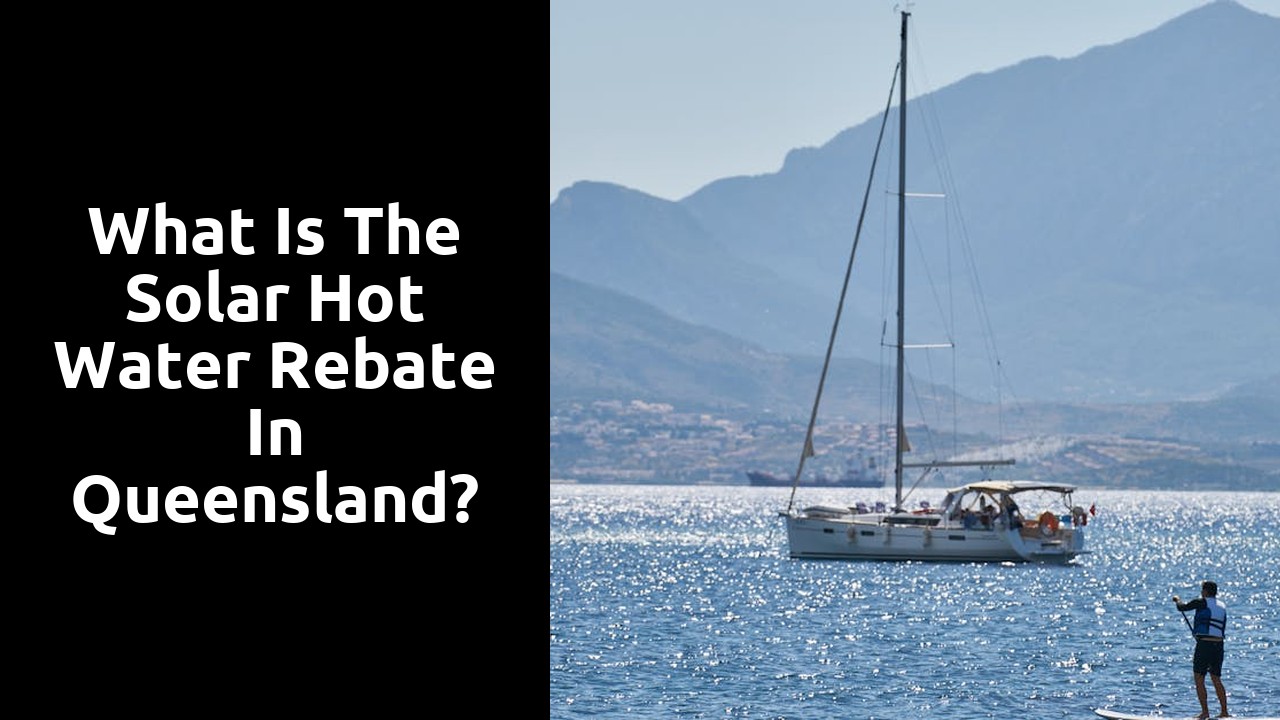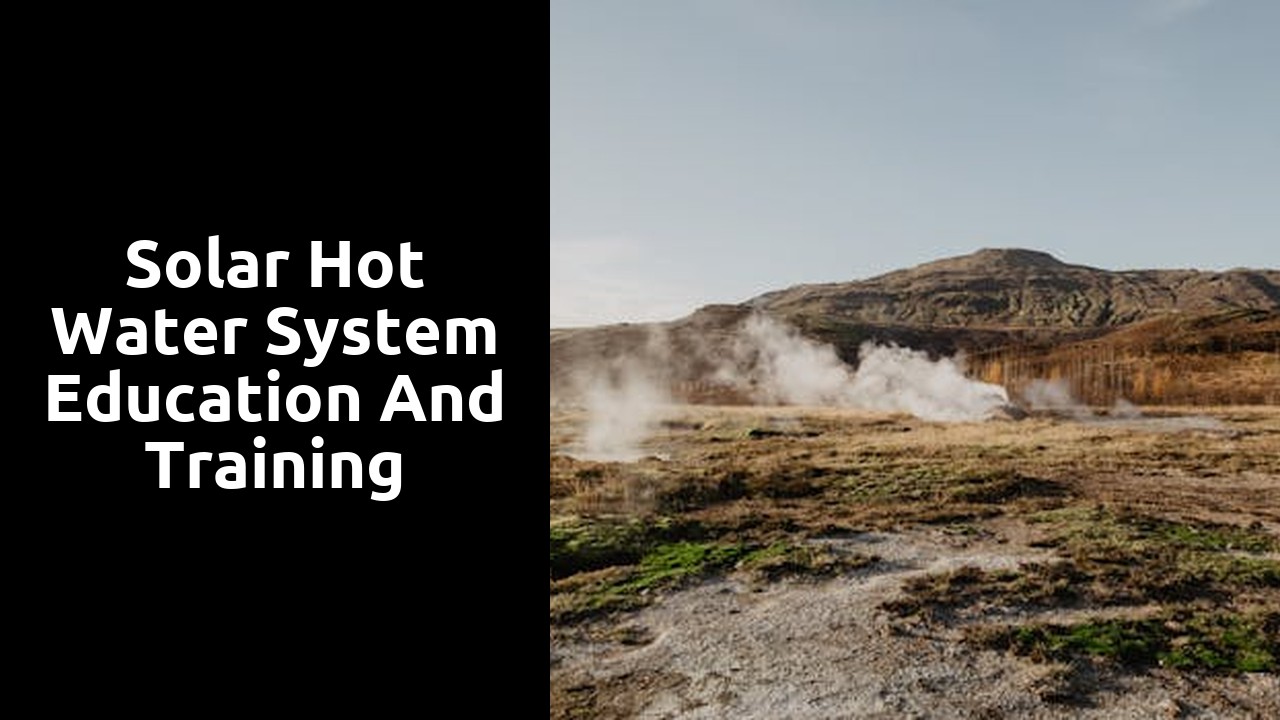
Table Of Contents
Frequently Asked Questions about the Rebate
When it comes to understanding the solar hot water rebate in Queensland, it's crucial to grasp the key details to take full advantage of this government initiative. Many homeowners wonder about their eligibility for the rebate. To be eligible, you must be a Queensland resident, own the property where the solar hot water system is installed, and ensure that the system meets specified requirements set by the government. It's essential to engage in Solar Hot Water System Education and Training to increase your knowledge about how the rebate works and what steps you need to take to apply for it seamlessly.
Another common question revolves around the amount of rebate one can receive. The rebate amount can fluctuate based on various factors such as the size and type of solar hot water system being installed. Typically, the rebate covers a portion of the upfront costs associated with purchasing and installing a solar hot water system. If you're interested in learning more about the specific rebate amount you may be eligible for, it's advisable to consult with a reputable solar energy provider who can guide you through the process and provide tailored advice based on your individual circumstances.
Clearing Up Common Misconceptions
One common misconception about the solar hot water rebate in Queensland is that it can only be used for residential properties. However, it's important to note that the rebate is also available for commercial and industrial properties, promoting the adoption of sustainable energy practices across various sectors. By encouraging a wider range of property owners to invest in solar hot water systems, the government aims to reduce energy consumption and greenhouse gas emissions on a larger scale.
Another misconception is that installing a solar hot water system is a complicated and lengthy process. In reality, with the right professional installation service, the transition to solar hot water can be smooth and efficient. Solar hot water system providers are well-equipped with the necessary Solar Hot Water System Education and Training to ensure that the installation is done safely and in compliance with industry standards. By partnering with experienced professionals, property owners can navigate the installation process with confidence and ease.
Solar Hot Water Rebate vs. Solar Panels Rebate
When considering renewable energy options, individuals often weigh the benefits of installing a solar hot water system versus solar panels on their property. Both systems harness the power of the sun but serve different purposes. Solar hot water systems are designed to heat water using sunlight, providing households with a cost-effective and sustainable way to meet their hot water needs. Alternatively, solar panels generate electricity by converting sunlight into energy, which can then be used to power homes and appliances. Understanding the distinctions between the two systems is crucial in making an informed decision about which option best suits the unique requirements of a household.
Solar Hot Water System Education and Training is essential for individuals looking to install a solar hot water system or solar panels on their property. This education equips homeowners with the knowledge needed to understand the benefits and functionalities of each system, enabling them to make an informed choice. By undergoing proper training, individuals can ensure that their solar energy system is installed correctly and operates efficiently, maximising the benefits of renewable energy while adhering to safety and compliance standards. Seeking professional guidance and staying informed on the latest advancements in solar technology is key to reaping the long-term rewards of sustainable energy solutions.
Understanding the Differences and Benefits
When considering the solar hot water rebate in Queensland, it is essential to differentiate between this incentive and the solar panels rebate. While both aim to promote sustainable energy usage, they cater to distinct aspects of renewable energy systems. The solar hot water rebate primarily focuses on encouraging the use of solar thermal technology for heating water, which can lead to significant energy savings and reduced greenhouse gas emissions. On the other hand, the solar panels rebate pertains to the installation of photovoltaic systems that convert sunlight into electricity, offering a different set of benefits and applications. Understanding these differences is crucial for consumers to make informed decisions based on their specific energy needs and sustainability goals.
Moreover, grasping the benefits associated with each rebate program allows individuals and households to leverage these incentives effectively. By opting for a solar hot water system, consumers can not only enjoy reduced electricity bills and lower carbon footprints but also contribute to the overall environmental conservation efforts. Participating in the solar hot water rebate scheme not only provides financial advantages but also promotes Solar Hot Water System Education and Training, fostering a community-wide understanding of renewable energy technologies and their positive impact on the environment. In contrast, the solar panels rebate encourages the adoption of solar photovoltaic systems to generate clean electricity, opening doors to potential energy self-sufficiency and long-term savings.
Importance of Professional Installation
When it comes to the installation of solar hot water systems, ensuring professional handling is crucial for various reasons. Firstly, professional installers have the necessary expertise and experience to correctly set up the system, ensuring its optimal performance. They are well-versed in the specific requirements and intricacies of solar hot water systems, guaranteeing that the installation is done accurately and safely. Moreover, professional installation helps avoid potential issues that may arise from improper setup, saving homeowners time and money in the long run.
Solar hot water systems are intricate pieces of technology that require precise installation methods for efficient functionality. Professional installers are equipped with the knowledge and skills acquired through rigorous Solar Hot Water System Education and Training. This training ensures that they are up-to-date with the latest industry standards and best practices, enabling them to install the system in compliance with safety regulations. By entrusting the installation to professionals, homeowners can have peace of mind knowing that their solar hot water system is installed correctly and will operate effectively for years to come.
Ensuring Safety and Compliance Standards
Once you have decided to install a solar hot water system in Queensland, it is crucial to prioritize safety and compliance standards. To ensure the system operates efficiently and safely, it is imperative to seek professional installation services. Professionals possess the necessary expertise and training to accurately install the system according to industry standards, reducing the risk of malfunctions or safety hazards. Solar hot water systems involve the integration of various components and require precise installation to guarantee optimal performance and longevity.
Professionally installed solar hot water systems also facilitate compliance with local regulations and safety codes. Compliance with these standards not only ensures the safety of the system but also protects the household from potential risks. Professional installation guarantees adherence to all safety and compliance guidelines, providing peace of mind to homeowners. Solar hot water system education and training play a vital role in equipping installers with the knowledge and skills required to perform installations that comply with safety standards and regulations, promoting efficient and safe operation of the system.
FAQS
What is the solar hot water rebate in Queensland?
The solar hot water rebate in Queensland is a financial incentive provided by the state government to encourage households to install solar hot water systems. It aims to reduce electricity usage and carbon emissions by promoting the use of renewable energy for heating water.
Who is eligible for the solar hot water rebate in Queensland?
Homeowners, landlords, and tenants in Queensland who meet the eligibility criteria set by the government are eligible for the solar hot water rebate. It is important to check the specific requirements and documentation needed to apply for the rebate.
How much is the solar hot water rebate in Queensland?
The rebate amount for solar hot water systems in Queensland can vary depending on factors such as system size, location, and efficiency. It is recommended to check the current rebate amount and any additional incentives available before purchasing a system.
How can I apply for the solar hot water rebate in Queensland?
To apply for the solar hot water rebate in Queensland, you will need to submit an application form along with supporting documents to the relevant government department. It is advisable to follow the guidelines provided and seek assistance if needed to ensure a smooth application process.
Can I combine the solar hot water rebate with other incentives or rebates?
In some cases, you may be able to combine the solar hot water rebate with other incentives or rebates available for renewable energy systems. It is recommended to check the terms and conditions of each program to determine if stacking incentives is allowed and beneficial for your situation.
